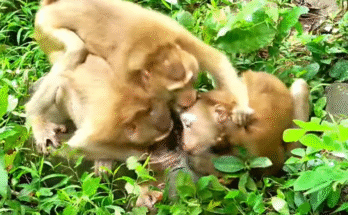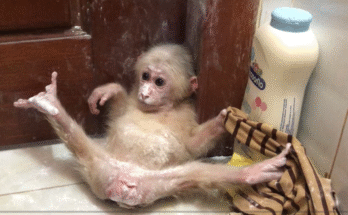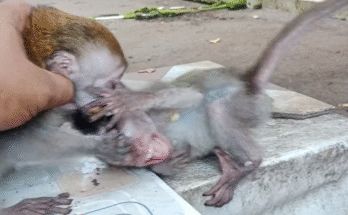Certainly! Here’s a polished and expanded version of your message, turning it into a 500-word story or note, along with a more engaging title.
Original Title: Naughty Minea Push Luna Down For Play When Mom And Dad Is Not Around
New Title: Minea Pushes Luna During Playtime When Mom and Dad Are Not Around
Article:
In every family, children sometimes test boundaries as they learn about sharing, patience, and how to treat others. Recently, a situation arose involving two young siblings, Minea and Luna, that highlights the importance of understanding and guidance in childhood behavior.
According to reports, during a play session when Mom and Dad were temporarily out of sight, Minea pushed Luna down while they were playing together. Such actions, though upsetting, are often part of a child’s development as they navigate social interactions and their own emotions. It’s common for children to act out or test limits, especially when they feel frustrated, jealous, or want to be the center of attention.
Luna, perhaps startled or upset by the push, might have felt hurt physically and emotionally. This behavior indicates that Minea may have been feeling overwhelmed or possessive during their playtime. It’s important for parents and caregivers to step in and address such incidents, helping children understand the impact of their actions and teaching them appropriate ways to express their feelings.
Parents can approach the situation by calmly explaining to Minea that pushing or hurting others is not acceptable. They might say, “Minea, it’s okay to want to play, but it’s not okay to push Luna. We need to be gentle and kind to our brothers and sisters.” Reinforcing the idea that everyone deserves respect and kindness helps children learn empathy and self-control.
For Luna, offering comfort and reassurance is equally important. Letting her know that she is loved and safe helps her feel secure and understood. Parents can also encourage children to share their feelings verbally rather than through actions, guiding them to use words when they’re upset or frustrated.
In addition to addressing the immediate behavior, parents can set clear rules and expectations about playing nicely. Creating a routine where children take turns, share toys, and communicate their feelings fosters a positive environment. When parents are present, they can model respectful behavior, demonstrating how to handle disagreements calmly and kindly.
Most importantly, this incident can be a teaching moment. Children learn best through gentle guidance and positive reinforcement. Praising Minea when she shows kindness, patience, or shares during play encourages her to repeat those behaviors. Explaining that everyone makes mistakes, but it’s important to apologize and try again, promotes accountability and growth.
In conclusion, Minea’s action of pushing Luna during playtime when Mom and Dad weren’t around is a common childhood behavior that offers parents and caregivers an opportunity to teach important lessons about kindness, respect, and self-control. With patience, understanding, and consistent guidance, children can learn to navigate their emotions and develop healthy ways of interacting with others. Every challenge is a step toward building a caring and respectful family environment.
If you’d like a shorter version or a different tone, just let me know!


